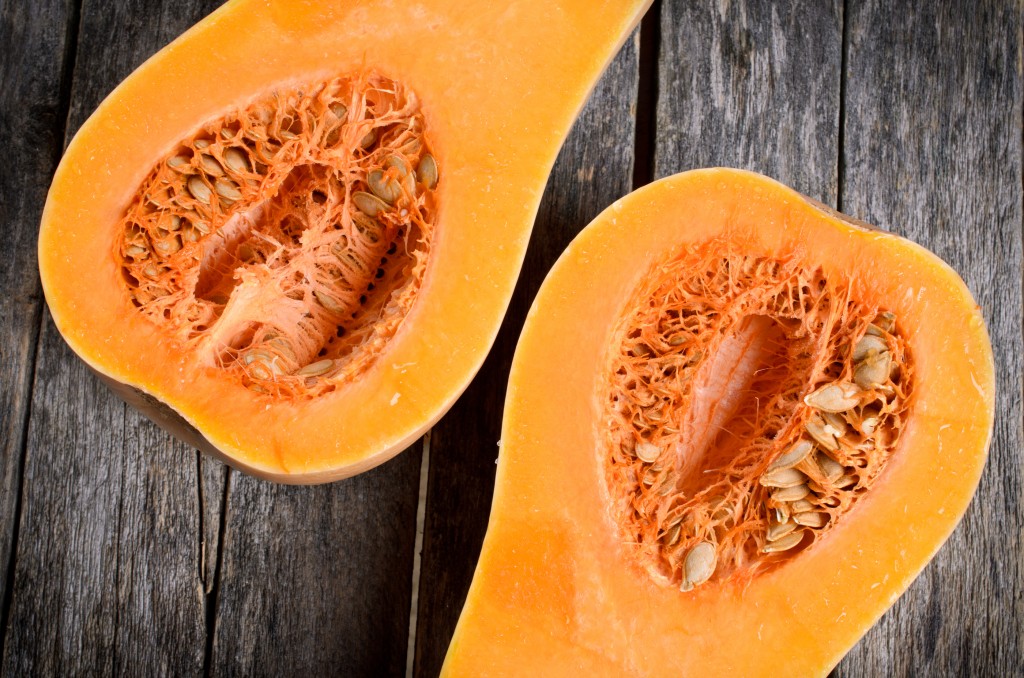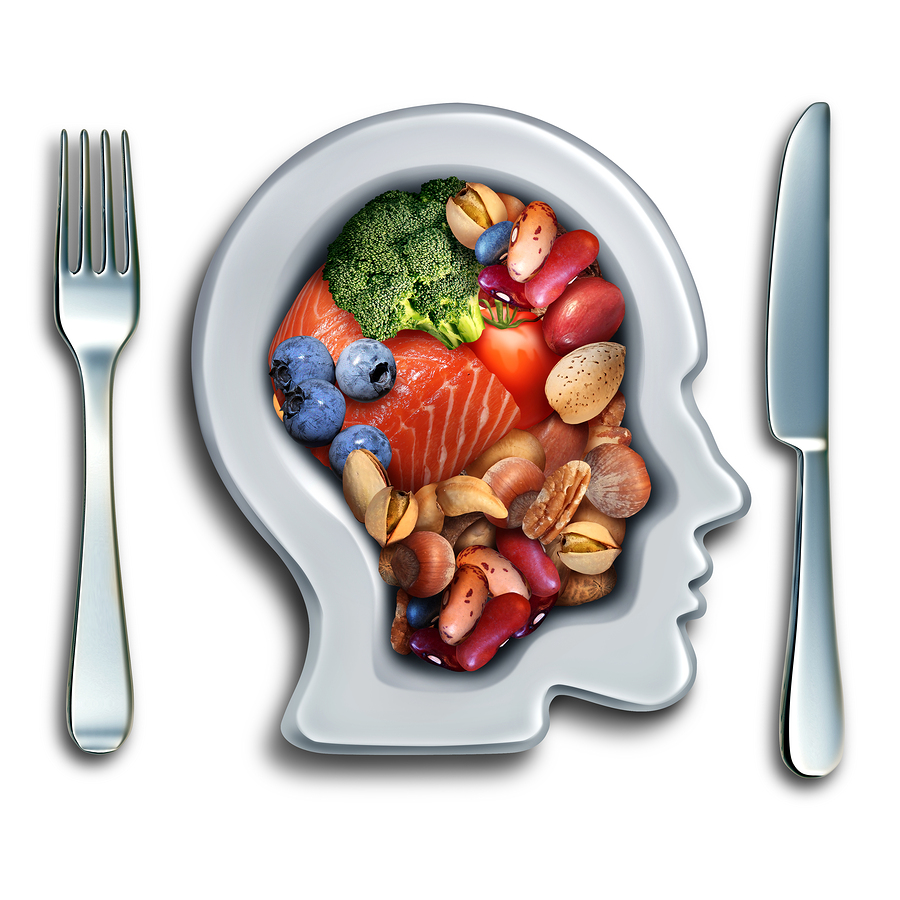- Make It Yourself Lavender Heart-Shaped Bath Bombs!
- 20 Things You Never Knew About “Down There”
- 12 Best Foods For Those Suffering From Arthritis Pain
- 12 Personal Hygiene Mistakes Almost Everyone Makes (Mom Never Told You About #4!)
- 15 Medicinal Plants And Herbs From The Cherokee People
- 12 Mind-Blowing Benefits Of Drinking Coconut Water During Pregnancy
- 12 Outstanding Winter Foods That Won’t Fatten You Up Like A Christmas Turkey
15 Super Foods That Boost Brain Power (#7 Is Too Good To Be True)
Everyone wants to follow a healthy diet for their body, but have you ever thought about the same thing particularly for the brain?
Food which is healthy for the brain stimulates good blood flow to your noggin, which will improve concentration, learning, and memory. Also, it nourishes the neurons that stop the brain from degeneration.
Super foods are all great for the body, but there are some of them that also support the brain, reducing the risk of Alzheimer’s disease, stroke, poor sleep patterns, irritability, and low energy levels.
Protect your brain from possible degeneration, nourish your vital neurons, improve your memory, and boost the production of neurotransmitters by adding more of the following 15 super foods to your diet each week.
1. Bee Pollen
Bee pollen has a wide variety of nutrients, making it one of the perfect energizing foods. It is about 40 percent protein. It is rich in B complex vitamins, amino acids, and folic acid, which can fight fatigue and improve the stamina of the brain. Feeling drained of energy in the afternoons? Forget the coffee or energy drinks — add a teaspoon of bee pollen to some juice or a smoothie for a boost of brain power that will easily get you through your day.
2. Tomatoes
Tomatoes contain a powerful type of antioxidant called lycopene, which protects the brain from the damage that free radicals cause in the development of many different types of dementia, including Alzheimer’s.
3. Walnuts
For a good source of plant-based omega-3 fatty acids, antioxidants, and natural phytosterols that have been proven reverse brain aging in tests done with elderly rats, walnuts can’t be beat. In particular, walnuts have a type of omega-3 fat, DHA, which has been found to encourage brain healing and boost brain function. Studies show that eating walnuts increased inferential reasoning in young adults. Other studies have found that eating foods high in antioxidants, like walnuts, increases overall healthiness, as well improves cognitive and motor functioning in the elderly. Walnuts are high in fat and calories, true, but you don’t need to eat a pound to get all the healthy benefits they have to offer — all you need is an ounce (about a handful) each day.
4. Broccoli And Cauliflower
Broccoli is an amazing food for both brain and body. This cruciferous vegetable is high in vitamin C, B vitamins, calcium, iron, beta-carotene, vitamin K, and fiber. Combined, these nutrients protect the brain from free radical damage and improve blood circulation to the brain. Broccoli also removes heavy metals that can cause serious damage to the brain — especially aluminum, which has been linked to Alzheimer’s disease. Both broccoli and cauliflower are terrific sources of choline, an important B vitamin when it comes to the development of the brain. Both of these veggies are also good sources of the anti-inflammatory flavonoid kaempferol, as well as three important glucosinolates phytonutirents that help detox the body.
5. Sunflower Seeds And Pumpkin Seeds
If you think these tasty little snacks are just for kids, think again. Both of these seeds have brain-healthy omega-3 fatty acids, B vitamins, and a rich mix of protein that gives you added energy, plus tryptophan, which the brain converts into serotonin. Serotonin naturally fights anxiety and depression by improving you mood. Just a handful of these seeds each day will give you the entire amount of virus-fighting zinc you need. Zinc has also been linked to an improved memory and thinking skills.
Continue to Page 2

Photo credit: bigstock.com
6. Almonds
Almonds are one of the most anti-inflammatory nuts around. In addition to that, they can slow the mental decline that often comes with age. These nuts raise the levels of serotonin in the brain – a vital neurotransmitter that controls your mood. Those who eat foods that stimulate higher levels of serotonin show lower rates of depression and more stable moods. Almonds also have vitamin E, which slows down the decline in cognitive function, especially among the aged. So grab a handful of almonds every afternoon for a brain-boosting snack that you can count on!
7. Dark Chocolate
Brain food doesn’t get much sweeter than this, does it? Antioxidant-rich dark chocolate is good for many things, but it is also a super brain food. Dark chocolate is also rich in a special type of antioxidant called flavonoids, which improves the blood flow to the brain, regulates cholesterol levels and lowers blood pressure. This isn’t an excuse to go hog wild! Just one ounce or so each day is all you need to get all the brain-boosting power you want.
8 Maca
This root is related to radishes and is most often found in a powder form. Maca has been used for centuries to balance hormones, alleviate cramps, as well as stop depression, feelings of anxiety, and mood swings. Many people state that maca helps improve their mental focus as well as their overall energy levels throughout the day. Take according to the package directions.
9. Coconut Oil
Your brain uses glucose as energy, but did you know that it can also run on more than one type of fuel? The thing is your brain’s preferred source of energy is ketones. Your body makes ketones when it converts fat (not glucose) into energy. Coconut oil is loaded with ketone bodies. Your liver immediately converts coconut oil into ketones, which are then released into your bloodstream, ready for your noggin to make use of them.
Although your brain can run just fine on glucose, there have been numerous studies showing that ketones can help to restore and renew neurons, and even nerve function, in the brain, even if damage has already begun. Therapeutic levels of used in studies are about 20 grams each day. This would be about two tablespoons worth of coconut oil each day to protect you from neurological disease or to treat those already in progress. Sounds like a small price to pay for a whole lot of protection, does it not?
10. Blueberries
Luscious, tasty blueberries have been linked to improvements in learning, memory, and thinking. This is due to the high levels of phytochemicals and antioxidants that reduce neurodegeneration oxidative stress. Compared to other fruits, blueberries are quite low in fructose. Wild blueberries are even higher in antioxidants and anthocyanins, which are known to guard the brain from neurological diseases such as Alzheimer’s.
Continue to Page 3

Photo credit: bigstock.com
11. Acorn Squash
The folic acid in acorn squash is terrific for keeping the brain sharp, especially for older adults, according to several studies. Folic acid can improve the speed at which the brain processes information as well as improving the memory. Aim to eat two or three servings of acorn squash each week.
RELATED: Top 10 Foods that Actually Boost Your Brain Power!
12. Spinach
Spinach contains nutrients that prevent damage to the DNA, slow the growth of tumors, and slow the growth of cancer cells. This leafy greenery can also either prevent or delay dementia, such as Alzheimer’s. Spinach is a terrific source of vitamin E and folates, both of which are great for improving overall brain function.
13. Turmeric
This yellow spice is the king of anti-inflammatories! The active ingredient in turmeric, curcumin, is one of the few foods that can cross the blood-brain barrier, which means that curcumin can stop inflammation in the brain, which is one of the main underlying causes of dementia. Studies have shown that curcumin can help to inhibit the accumulation of beta-amyloids in those diagnosed with Alzheimer’s. It can also help to break up existing plaque. Turmeric has also been shown to stimulate the production of new brain cells and improve overall memory function. Another study, this one involving animals, found that the bioactive compound in turmeric (aromatic-turmerone) increased neural stem cell growth by as much as 80 percent! Don’t rely on curry powder to get your curcumin on as many curry powders contain very little turmeric. Buy pure turmeric powder and consume one or two tablespoons each day.
14. Celery
You might wonder how this little water-filled veggie could possibly help the brain, but it does! Celery contains luteolin, a plant compound that fights inflammation in the brain. In studies with mice, luteolin was linked to lower rates of age related memory loss. Also, older mice that were fed a diet high in luteolin scored better on memory tasks. Carrots and bell peppers are also good sources of luteolin.
15. Wild Alaskan Salmon
Wild Alaskan salmon can fight inflammation throughout the body, including your grey matter, through their high levels of omega-3 fatty acids. The journal Neurology found in one study that older women who had the highest levels of omega-3s had improved preservation of the brain as they aged when compared with those who had the lowest levels of omega-3s. Another research study found that when young men were given an omega-3 supplement, they had significant increases in the activation of the prefrontal cortex part of the brain, which is the part that is known to keep your working memory. Try eating at least two servings each week of wild Alaskan salmon, sardines, or anchovies. If you prefer, you can take a fish oil or krill oil supplement.
Paying more attention to the foods you eat, instead of solely focusing on calorie count, can clear the body of toxins and provide your brain with whole foods that can help your brain thrive.
References:


































Marvin Zinn
Dec 30, 2015 at 12:10 pm
WOW. That is the food I normally eat! I must be a genius, not even knowing how smart I was.
Gabe
Dec 30, 2015 at 2:14 pm
Indeed, you’re a smart feller. Say that real fast five times. 🙂